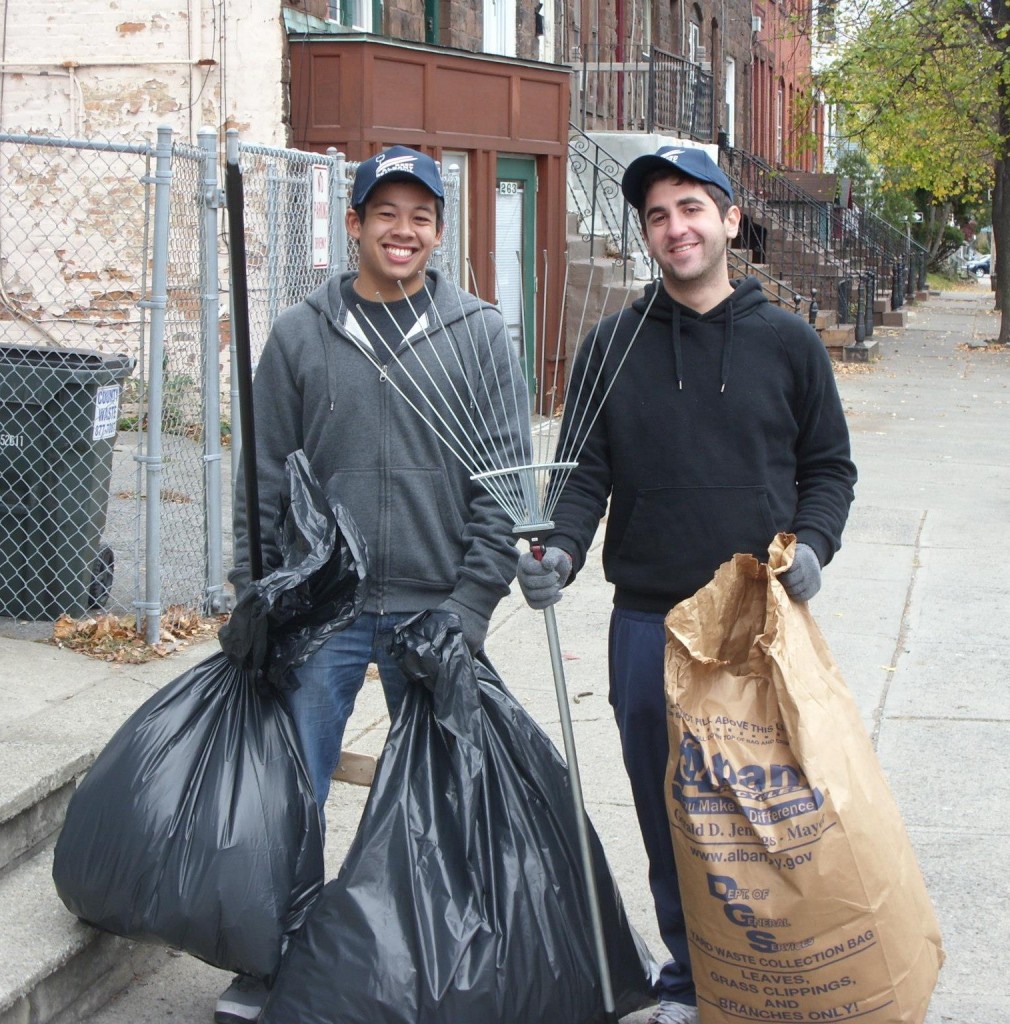The holidays are fast approaching and with them, we see an increase in volunteer activity. Given my extensive experience, I would like to share some general tips to keep in mind this holiday season and all year round. While the instant gratification of extending a helping hand is great, forming lasting partnerships surrounding subjects you care deeply about can have a much more profound impact. —Elise Newkirk, Coordinator of Community Relations for SUNY
 1. Assess what type of volunteer you are. Are you looking for a single volunteer experience during the holiday season or would you like to volunteer your time more frequently? Would you like to volunteer with a student group or your family or would you like to volunteer alone? Consider what type of volunteer you are to help you choose a volunteer experience that will be a good fit and keep you coming back for more!
1. Assess what type of volunteer you are. Are you looking for a single volunteer experience during the holiday season or would you like to volunteer your time more frequently? Would you like to volunteer with a student group or your family or would you like to volunteer alone? Consider what type of volunteer you are to help you choose a volunteer experience that will be a good fit and keep you coming back for more!
2. Find your volunteer venues. Many campuses have centers for community engagement that help students find volunteer opportunities and connect students to ongoing projects and groups. These centers can also help you volunteer locally in whatever topic area is most important to you.
3. Stay local. You dont need to go far to find great volunteer opportunities.
4. Start early. If there is a specific volunteer opportunity you know you would like to be part of consider signing up early. Many organizations plan events weeks or even months in advance to allow time to properly coordinate volunteers and resources.
5. Consider signing up for an alternative winter or summer break. These are fantastic for meeting others with similar volunteer interests and for engaging in well-established partnerships.
6. Prepare yourself properly. Read about the relevant social issues surrounding the type of volunteerism you are interested in. If there is training that is required or suggested – take it! This will open you up to a much deeper experience and make you a more effective volunteer.
7. Recognize that volunteering is serious. If you plan on volunteering take it as seriously as you would take any other commitment. Let coordinators know in plenty of time if you are ill or unable to attend an event and always maintain open communication. Speak in person and over the phone rather than through email or text to show the people you are working with that you take this relationship seriously.
8. Take the initiative to hold a drive. Holding a drive for a particular community partner or for disaster relief can be enormously helpful and empowering. Gather needed goods with friends and deliver them. Always make sure to check ahead with community partners to make sure you are collecting things that they really need and involve them in the process.
9. Start or join a club. Start a volunteer club on your campus, start a chapter of the many volunteer-based organizations currently operating or join one!
10. Get your friends involved! Share the volunteer experience with friends by asking them for help with holding drives or attending volunteer events. This will help foster your friendships and increase your impact.
Cover Photo: University at Albany, Fall 2012
SUNY List is a series that highlights different aspects of higher education, as compiled by SUNY System Administration staff members.

